Discover the Pros and Cons of Living in Austria
Are you wondering what it’s like living in Austria? You’ve come to the right place.
I come from Slovakia, and Austria has always been our more prosperous neighbor.
Not surprisingly, many people are drawn to living in Austria. This central European country provides lucrative job opportunities, stunning landscapes and a high-quality lifestyle.
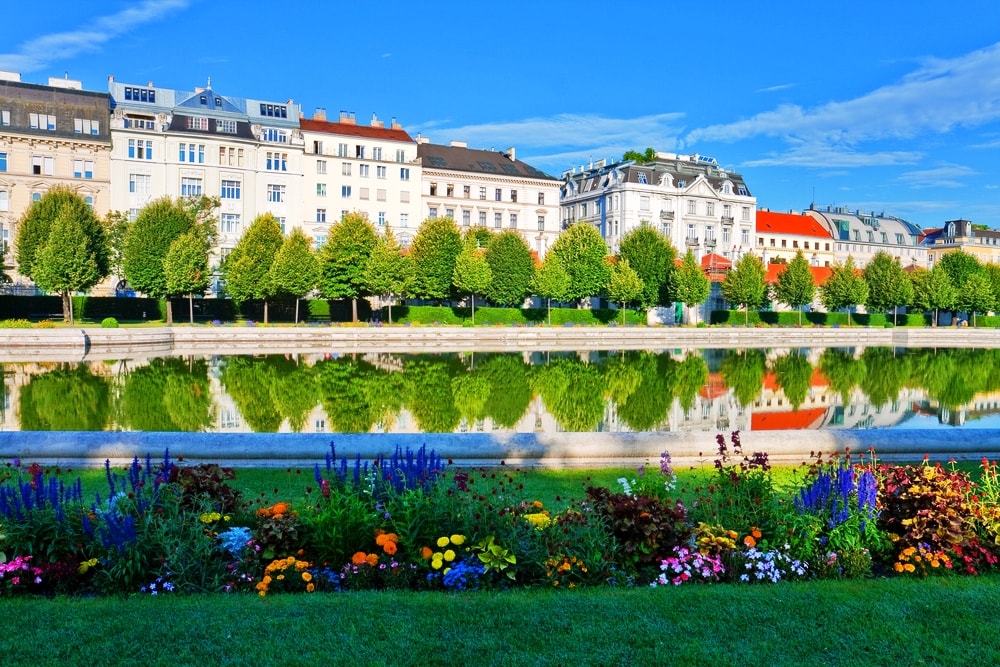
These were also some of the reasons why my brother decided to settle in Austria. He moved to a small picturesque town in the Austrian Alps while I ventured further to Canada.
We often chat on the phone and discuss the pros and cons of living in Austria vs Canada. In this article, I’ll share what’s best and worst about life in Austria.
- Discover the Pros and Cons of Living in Austria
- Pros and cons of living in Austria for expats
- Does Austria have a digital nomad visa?
- What visa do I need to move to Austria?
- Moving to Austria to Work
- Pros of Living in Austria
- High Standard of Living
- 13th and 14th Salary
- Austria is a Neutral State
- Strong Economy
- Top-Notch Supermarkets & Bakeries
- Organized and Clean
- Friendly People
- Beautiful Nature
- Work-Life Balance
- Free Education
- Austrian Cuisine
- Rich History and Culture
- Excellent Public Transportation
- Low Crime Rate
- Excellent Social Security policies
- Everyone Speaks English
- Four Seasons
- Cheap Flights Across Europe
- Cons of Living in Austria
- Frequently asked Question – FAQS
- What are the pros of living in Austria?
- What are the cons of living in Austria?
- How is the cost of living in Austria?
- Is Austria a good country for expats?
- What are the wages like in Austria?
- Are there any specific cities in Austria that are recommended to live in?
- How is the healthcare system in Austria?
- What are some outdoor activities available in Austria?
- Can I study at universities in Austria as a foreigner?
- Is Austria a safe country to live in?
Pros and cons of living in Austria for expats
Expats in Austria appreciate the local culture for its strong emphasis on tradition and high quality of life. The country’s rich history and breathtaking landscapes are highly admired by those living there. The people in Austria are known for their punctuality, reliability, and politeness.
Austrians also value their free time and have a healthy work-life balance, which is greatly appreciated by foreigners. The local cuisine, including schnitzel, strudel, and Sachertorte, is highly regarded for its delicious flavors and unique recipes. Moreover, Austria is renowned for its world-class music, from classical composers like Mozart and Strauss to contemporary artists like Falco.

Expats often find themselves immersed in the vibrant cultural scene, attending concerts, opera performances, and experiencing the famous Viennese balls. Overall, the combination of cultural heritage, beautiful landscapes, friendly and welcoming people, and a high standard of living make Austria an attractive destination for expats seeking a harmonious and fulfilling life abroad.
Does Austria have a digital nomad visa?
Austria does not currently have a dedicated digital nomad visa for non-EU, EEA, or Swiss citizens. Instead, these individuals can enter Austria on a tourist visa or a visa-free travel agreement and work remotely for up to three months without any restrictions.
What visa do I need to move to Austria?
Individuals from the European Union (EU) and those from outside the EU who wish to establish Austria as their new home can easily move here for an extended period of time. However, the process of moving may vary depending on the country you originate from.
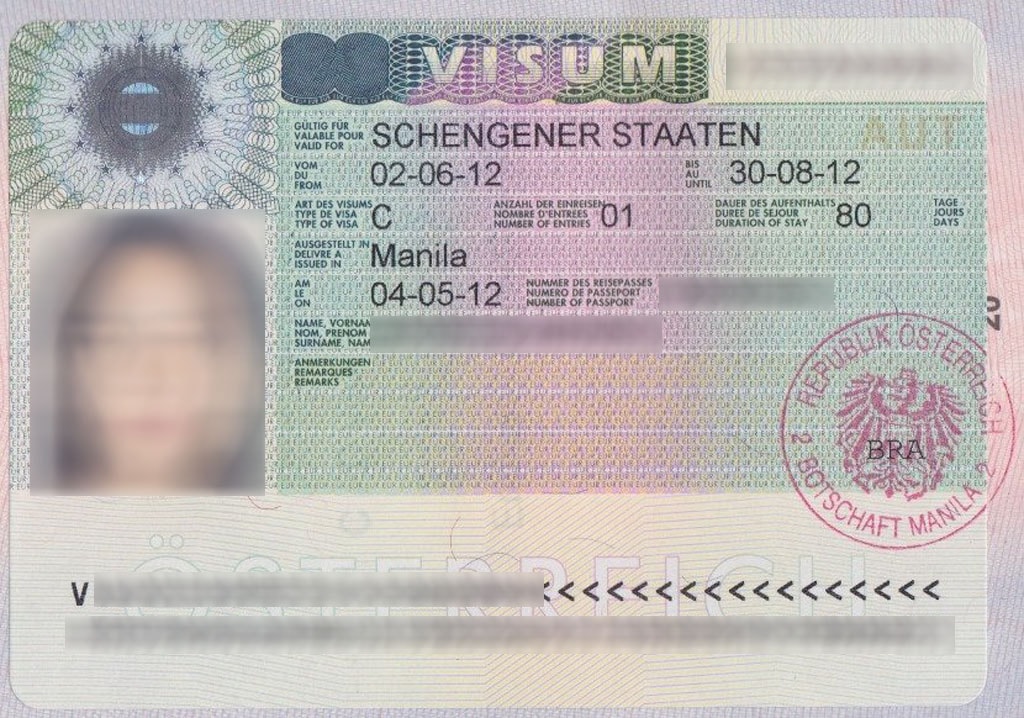
Before applying for a work permit in Austria, you must have a job; otherwise, you will not be allowed to apply for the Red-White-Red Card visa. The best option for acquiring permanent residence in Austria is to apply for this Red-White-Red Card. This card facilitates the immigration of skilled workers and their families, with the opportunity for long-term settlement.
In the case of non-EU citizens who desire to permanently reside in Austria, it is essential to begin by applying for a D visa, which is a type of long-stay visa. This visa will grant you entry into Austria, after which you can proceed to apply for the specific type of residence permit that suits your needs. The D visa, or long-stay visa, is issued for various purposes, such as employment, education, and family reunification.
Moving to Austria to Work
In order to work in Austria, it is necessary to obtain both a work permit and a work visa (D visa). Individuals who are not from the EU and possess exceptional skills may be granted a Red-White-Red Card as a work permit to reside in Austria for a maximum of 2 years.
To be eligible for the Red-White-Red Card visa you must obtain employment prior to applying. The application process for this visa can be carried out by the individual or the employer.
Furthermore, highly qualified professionals are also capable of applying for an EU Blue Card if they have been offered a job by an Austrian employer and possess the necessary expertise and qualifications for the position. The EU Blue Card allows the individual to bring their family members to Austria.

Pros of Living in Austria
High Standard of Living
Austria has an undeniably high quality of life. You don’t need to check statistics to know that. You can simply look around in any town in Austria, and all you see is modern housing in clean neighborhoods and good cars.
Austria offers economic stability, a top-notch social security system and infrastructure, cultural richness and an enjoyable lifestyle.
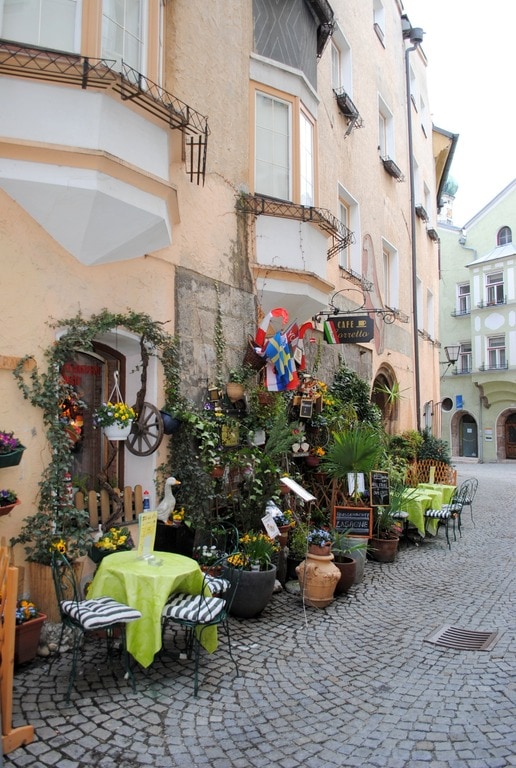
According to the Economist Intelligence Unit, Vienna (Austrian capital) consecutively ranks as the world’s most liveable city.
Another good news is that the cost of living is not as high as in many other Western countries like Canada and Switzerland.
I was shocked when I discovered that the rent prices are about 90% higher in Toronto than in Vienna.
Because of high rental costs, most Canadians need a second job or a side hustle to keep up with the expenses. I don’t think you’ll have the same issue in Austria. It’s generally possible to have a comfortable life here.
13th and 14th Salary
If you work in Austria, you’ll enjoy a 13th and 14th-month salary. Your employer is legally obliged to provide that. This pro was probably the biggest surprise for me, so it earned the spot at the top of my list.
Basically, it means that if you work in Austria, you receive an extra salary in summer and another one around Christmas. This holiday allowance is equivalent to your basic salary. The 13th and the 14th salaries are also taxed lower than your usual income.
In other words, it’s like getting paid double twice per year. That’s what I call a perfect Christmas present! It gives you a financial boost around holidays to get nice presents for your family, enjoy a vacation somewhere or simply put some money aside. I’d love to see it being implemented in other countries worldwide, too.

Austria is a Neutral State
Austria has a strong tradition of compromise in negotiations, whether political, social, economic, or cultural.
The country has always been a neutral state, meaning it doesn’t participate in any military conflicts. Austria also isn’t part of NATO.
This gives its residents an added sense of security and stability, especially in times of war between Russia and Ukraine.
Interesting fact: Austrian men must serve six months of military training.
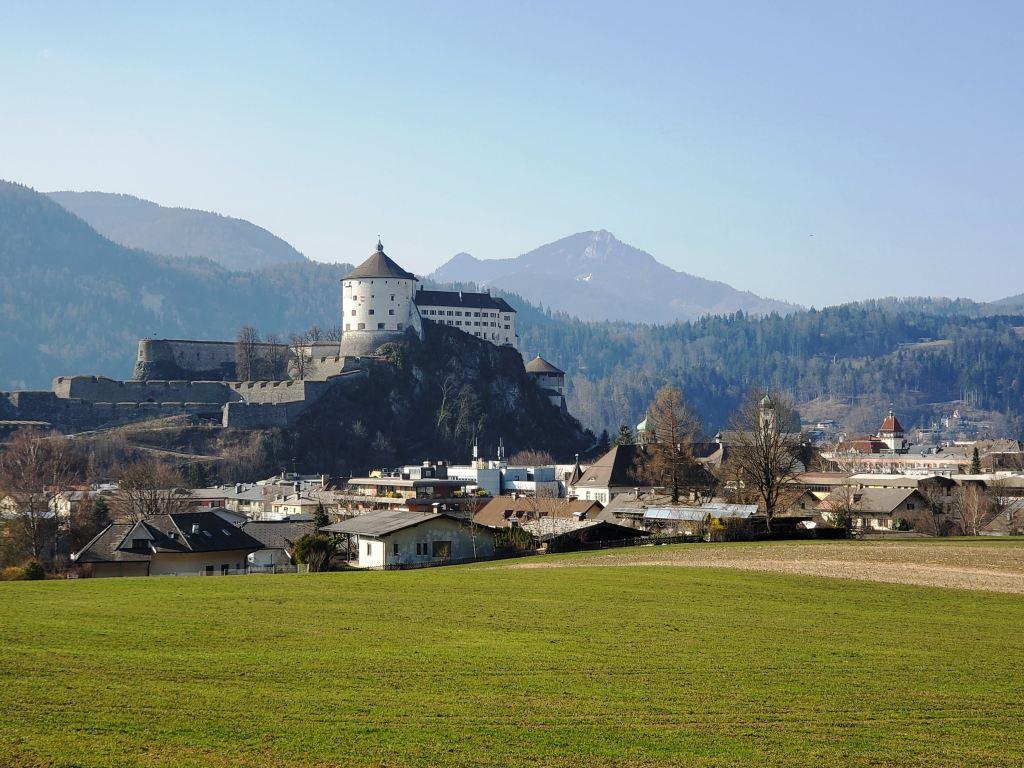
Strong Economy
Austria’s economy is one of the most prosperous within the European Union, with exports of goods and services reaching more than 50 percent of GDP.
The economy is closely integrated with other European countries, especially Germany. Austria also has great relations with neighboring nations. The business and social interchange with Slovakia, the Czech Republic, Hungary, and Croatia grows daily.
The main industries and exports are iron and steel, timber, machinery, textiles, chemicals, hydroelectric power, tourism, mining, and motor vehicle production.
Some of the most in-demand jobs in Austria are caregivers, accountants, nurses, chefs and blue-collar jobs.
Vienna is a major hub for international business in central Europe it is also one of the most expensive cities to live in along with Salzburg, Innsbruck, Graz, and Linz. Having said that though Vienna has been ranked many times as the best city in the world to live in, primarily because of its quality of life.
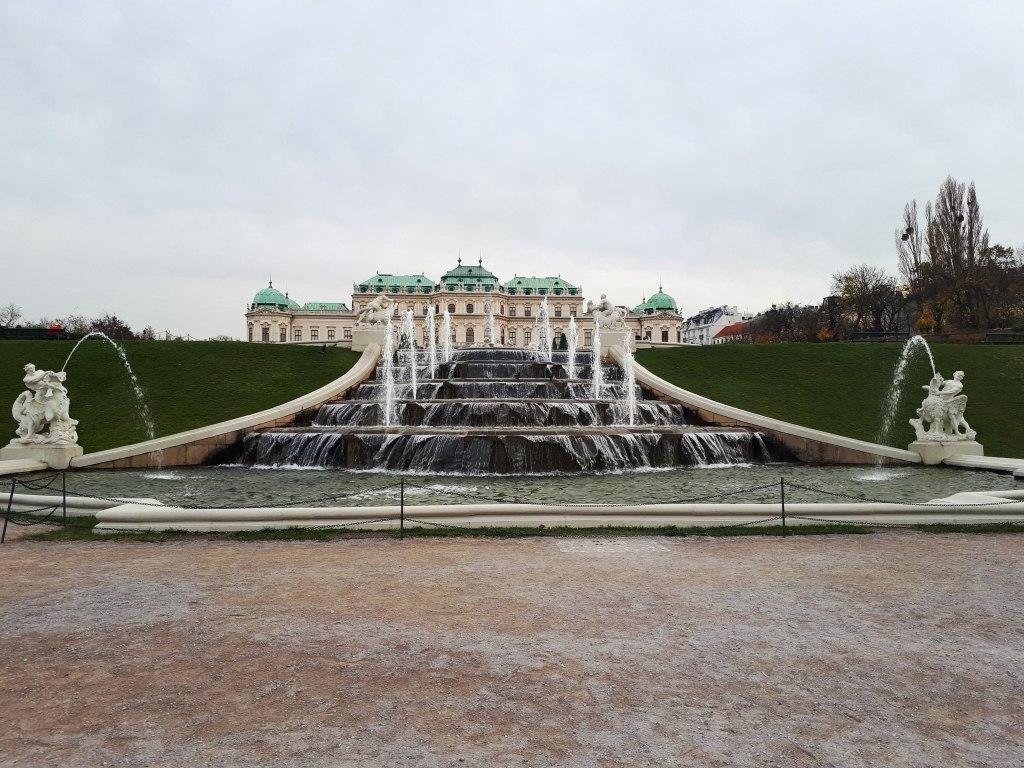
The city is only one hour from Slovak borders, so many Slovaks commute to Austria for work every day. Those are the perks that come with being an EU citizen. You can move and work freely across borders.
However, to get Austrian citizenship, you’ll need to wait for at least 10 years. That’s much longer than in Canada, where you can receive your Canadian citizenship in as early as 3 years of being a permanent resident.
Top-Notch Supermarkets & Bakeries
Austria is self-sufficient in agricultural products, boasting one of the largest organic industries in Europe.
After immigrating to Canada, I especially miss the European bakeries and dairy products, and Austria is a master of this. After all, they have plenty of happy cows grazing the prime grass of the Alps.

The common grocery stores are Billa, Lidl, Hofer, Spar and Eurospar.
All meat, dairy, and vegetable products have an exceptionally high standard, and supermarkets offer mostly local fresh produce. Genetically modified crops aren’t available in Austria. Only exotic fruits and foods are imported.
Do yourself a favor and try Mannerschnitten (Viennese hazelnut wafers). They taste divine. You have probably eaten Austria’s national dish Weiner Schnitzel many times in your life and it is available everywhere here.
Organized and Clean
Austria is a beautiful country, and Austrians care deeply about their environment, going to great lengths to protect it.

For example, your car must comply with Austria’s environmental standards.
They also take their recycling very seriously. All waste materials get sorted into glass, plastic, paper, aluminum, tin, organic waste and general garbage.
As a result, if you live in Austria, you can enjoy a clean environment and good air quality.
The Austrians take pride in an ordered society and follow the rules. Order is something they value and appreciate.
A simple example is that you won’t see Austrians jaywalking, even if there is no traffic.
Friendly People
Although Austria and Germany share the same language, Austrians are very different from their German neighbors. They seem to be more open-minded and relaxed.
Austria has been shaped by a different history and by the close proximity of many other nations, including Slovakia. Ha! (I hope we had a positive influence.)
Overall, Austrians are a very friendly and hospitable nation.
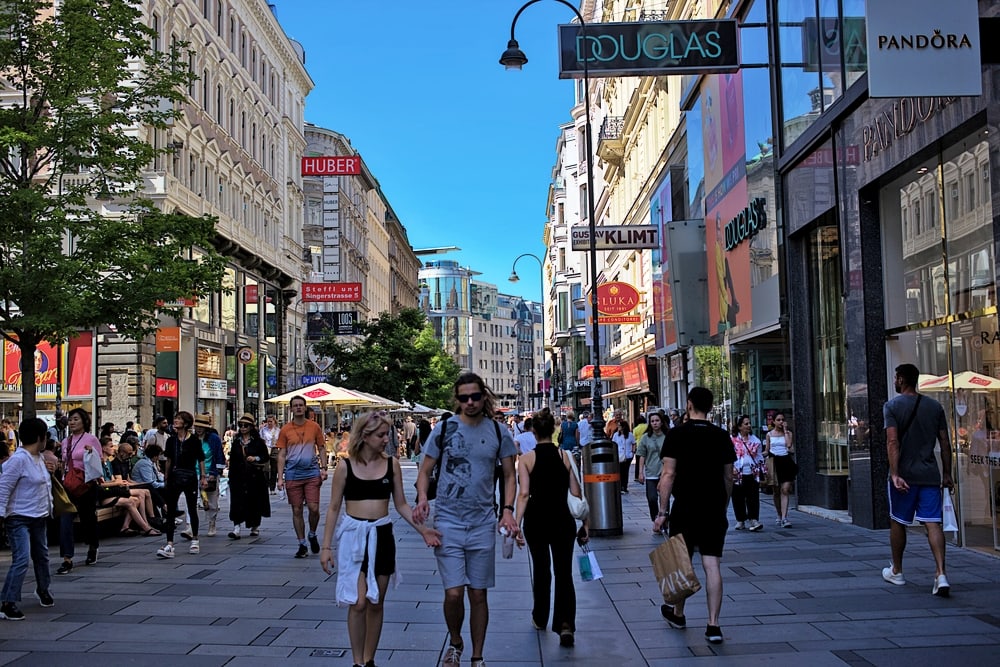
Beautiful Nature
More than 80% of Austria’s land is covered by mountains. For Austrians, walking and hiking is a second nature. But rightly so.
Chances are that such beautiful scenery will make you restless to hop on a bike or put on your hiking shoes. No matter where you live in Austria, nature is at your doorstep.
The Austrian Alps are a real treasure and cover more than half the country. This mountain range attracts thousands of locals and tourists every year.
Austria also has many stunning natural alpine lakes and rivers to swim or relax by during summer and ski resorts for winter fun. Perhaps one of the most picturesque Austrian lakes is Lake Hallstatt.
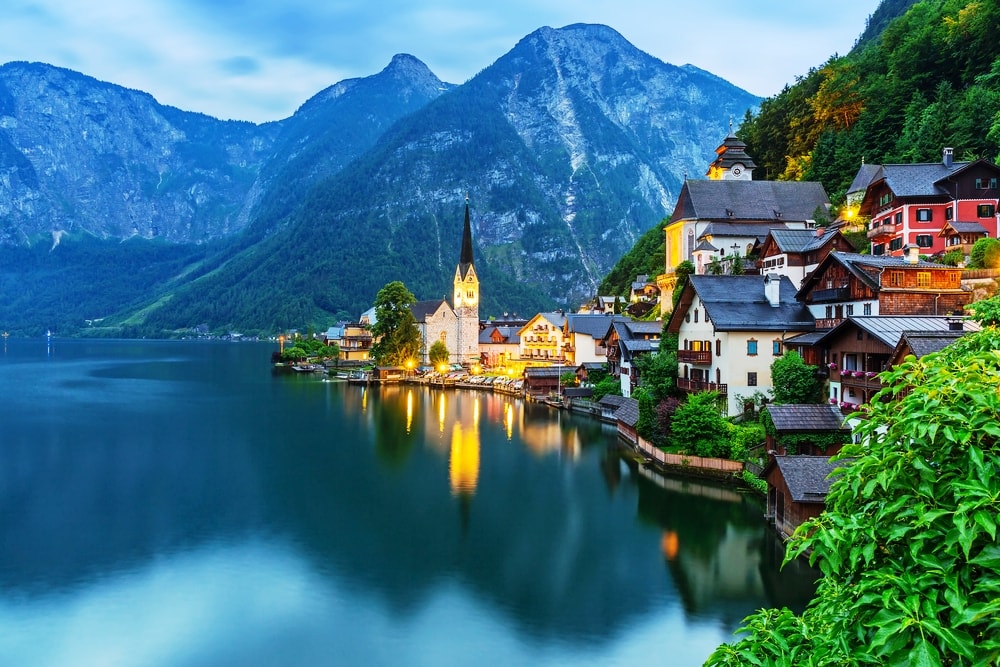
Work-Life Balance
Unlike the US or Canada, which glorifies the hustle culture, Austria seems to have a much better work–life balance.
It’s rare to see anyone working late, putting in extra hours, or taking work home. This would be seen as a sign of personal inefficiency. There is a clear separation between social and working life.
Austrians also enjoy a generous amount of free time and like to be active. Spending time outdoors is an integral part of social life. Walking, hiking, or cycling in the summer and skiing in the winter are all very popular.

There are a large number of public holidays, and Austrians have developed the habit of creating long weekends that stretch a public holiday into four days, if possible. If a holiday falls on a Thursday or Tuesday, people don’t work on Friday or Monday.
Most Austrians travel abroad on vacation at least once a year.
Free Education
Education in Austria, including higher education, is free for Austrians. This is a big benefit compared to the Canadian education system, where students pay hefty tuition fees.
Private schools exist but are in the minority. The general education in Austria is very comprehensive, providing students with a broad knowledge base. All Austrian kids have to go to school from 6 to 15 years old.
Austria also has fantastic vocational secondary schools that provide practical on-the-job training for the students.
In Austria, education is nationally regulated, and all schools have to follow the same standards.
Austrian Cuisine
One of the biggest pros of living in Austria is the food.
Austrians love hearty food, especially rich meats and pastries. You’ve probably heard about Wiener Schnitzel, a thin fried slice of meat coated in breadcrumbs served with potatoes. It’s a simple yet delicious dish.

The food is generally excellent, and portions are enormous. Eating out and drinking is a major pastime.
I also love the coffee culture in Austria. Vienna has many amazing coffee shops. I’ve read that the first coffeehouse in Vienna was opened as early as 1683.
Austria is also famous for sweets. Make sure to try Sachertorte (chocolate cake), Keiserschmarrn (pancake dessert) and Apfel Strudel (apple strudel).

Rich History and Culture
In Austria, every town has charming historic buildings and a pedestrian-friendly old town center.
Austria is rich in world-class museums, castles, monasteries and cultural events. There are more castles and churches than I can count, and Vienna is one of the most vibrant, culturally rich capitals in all of Europe.

Its musical heritage reigns supreme, and for such a small nation, it has an incredible number of legendary composers.
Did you know that Austria is the birthplace of Mozart? He was born in Salzburg, a beautiful Austrian city.
If you ever go there for a visit, make sure to savor the Mozartkugel named after Mozart.It’s a round sugar candy made of pistachio, marzipan, and nougat covered with dark chocolate.
Excellent Public Transportation
Public transportation in Austria is a joy.
Even the most remote Austrian village can be reached by well-maintained roads and public transport.
The infrastructure is top-notch, and the trains are punctual, efficient, and comfortable.
You can buy tickets either from a machine, online or in Vienna from the local Trafik shop. Typically, you punch your ticket before you board the bus or U Bahn.
Austrians trust you to buy a ticket and to validate it. However, if the inspector boards and you don’t have a ticket, you’ll have to pay a fine.
If you choose to live in Vienna, the public transportation is great and reasonably priced. You can easily get around without a car. I got spoiled with public transport in Europe. In Canada, a car is pretty essential.
Low Crime Rate
Austria is a very safe place to live and work in.
The crime rates are low, and violent crime is rare. Statistically, crime is far less common in Austria than in the United States or the United Kingdom.
Generally, walking around town at night is pretty safe, and there are no “no-go” areas. However, it’s always advisable to take precautions.
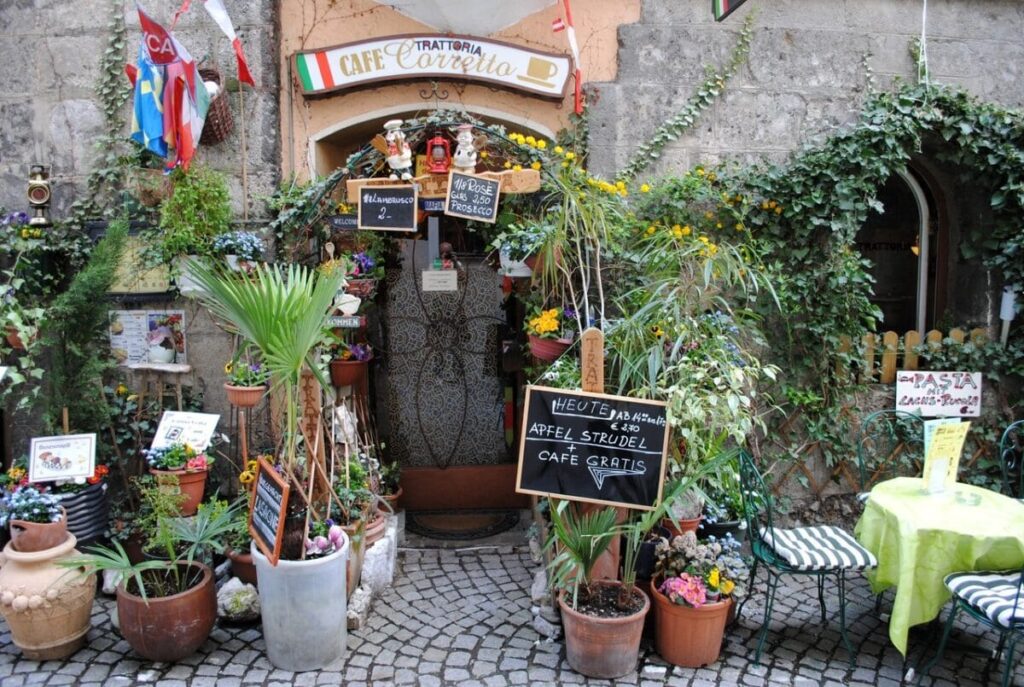
In the past few years, there has been a slight increase in crime due to a large influx of refugees from the Middle East.
As long as you use common sense to watch out for pickpocketers, especially in crowded areas, and keep your car locked at all times, you should be fine.
Excellent Social Security policies
Austria has a well-structured social security system that aims to take good care of everyone’s health, job security and pension.
All Austrians and residents are required to have health insurance by law. If you work in Austria, your employer automatically covers that.
You’re entitled to a minimum of four weeks of vacation and six weeks of fully paid sick leave.
Maternity benefits are also generous. New mothers get sixteen weeks’ paid leave.
Social contributions like pensions get deducted from your salary every month.
Everyone Speaks English
Of all the countries in Europe, Austria has one of the highest percentages of English speakers. Everyone you meet in Austria can speak English quite well.
While German is the official language, you won’t have any trouble communicating with locals and navigating as an English speaker. This makes living in Austria much easier and more comfortable adjustment for expats.
In addition to English, many major Austrian cities like Vienna, Graz and Linz have an established international expat community. The most numerous foreign expats are from Germany, Turkey and Romania.
So, the good news is speaking German isn’t vital, but it will make your life much easier and increase your chances of landing a job if you do.
Plus, Austrians greatly appreciate expats who make some attempt at German, even the use of simple phrases such as “Guten Morgen” (Good Morning), “Auf Wiedersehen” (Good Bye) or “Danke” (Thanks).
The Austrian German is the same as that spoken in Germany, although there are varying regional dialects. My brother speaks German fluently, but when his colleagues start chatting in Austrian dialect, he feels lost.
Four Seasons
Austria’s climate is mild, meaning the temperatures don’t get too cold in winter nor too hot in the summer.
I love the changing of seasons in Austria. Every season is distinct, and you get to experience all four. Summers are warm and perfect for leisure activities like swimming in the lakes.

In autumn, the leaves turn into vibrant colors, creating a picturesque landscape. It’s also harvest season, so fresh fruits and vegetables are abundant.
Winters can be cold, but if you like skiing, it’s a joy. Winter also means magical Christmas markets with mulled wine, gingerbread and many other goodies. Christmas markets in Vienna are on another level.
Finally, spring brings new life, with flowers blooming everywhere. The weather starts to warm up, making it perfect for hiking.

Each season adds unique charm and beauty to the country, making Austria a truly great place to live. Changing seasons is also one of the reasons why I love living in Canada.
Cheap Flights Across Europe
Austria has a good central location, making it a convenient base to fly to the rest of Europe. The best part is how easy and cheap it is to travel across Europe.
Compared to Canada, where flights can be quite expensive and lengthy, many budget airlines fly from Vienna to various European destinations.

For as little as $50, you can book a flight to another European city for a weekend getaway. Living in Austria is the perfect opportunity to travel and experience different cultures in Europe.
In many cases, you don’t even need to board a flight; you can just drive for a few hours, and voilà you’re in another country.
For example, from Vienna to Bratislava (the capital city of Slovakia) it’s only a 1h drive. From Vienna to Budapest (capital of Hungary) it’s 2h 30 mins drive and from Vienna to Prague it’s 3h 30 mins. I mean, how cool is that!
Cons of Living in Austria
The Aging Population
The aging population, together with high pension costs, poses serious problems for future tax and welfare policies. To be fair, this seems to be a more global issue.
The number and percentage of the senior population of 65 and older is increasing.
This means that fewer working-age people will be available to support the growing number of retirees. It may lead to an increase in taxes and a decrease in social benefits for future generations.
Making Friends Can Be a Challenge
Most Austrians have a small, closely-knit circle of friends, usually those from school or university days. And they don’t socialize much outside of that circle.
They’re a bit reserved, so it takes time to make an Austrian friend. But once you befriend them, they’re loyal friends.
Austrians love the outdoors and walk or cycle for hours in the mountains or countryside. So the best way to meet new people is by finding common interests, perhaps by joining a hiking or biking club.

Shops are Closed on Sundays
Short opening hours for stores are a thing in Austria. During the week, shops open at around 8 or 9 am and close as early as 6 pm.
On Saturdays shops can stay open until 6 pm but many close at lunchtime. On Sundays, not only shops but also supermarkets in or near larger towns and cities are closed. Bakers open for a few hours in the early morning, and that’s about it.
Otherwise, the only shops open on Sunday are twenty-four-hour gas stations.
This may come as a surprise, especially if you moved to Austria from a large city in North America like Toronto or New York that never sleeps.
Cold Winters
Yes, I mentioned the changing seasons as one of the pros of living in Austria. And they are! But winters can also be pretty cold. Temperatures can drop below zero and stay there for weeks.
Average winter temperatures range from 14°F (-10°C) in the mountains and 21°F (-6°C) in the lowlands.
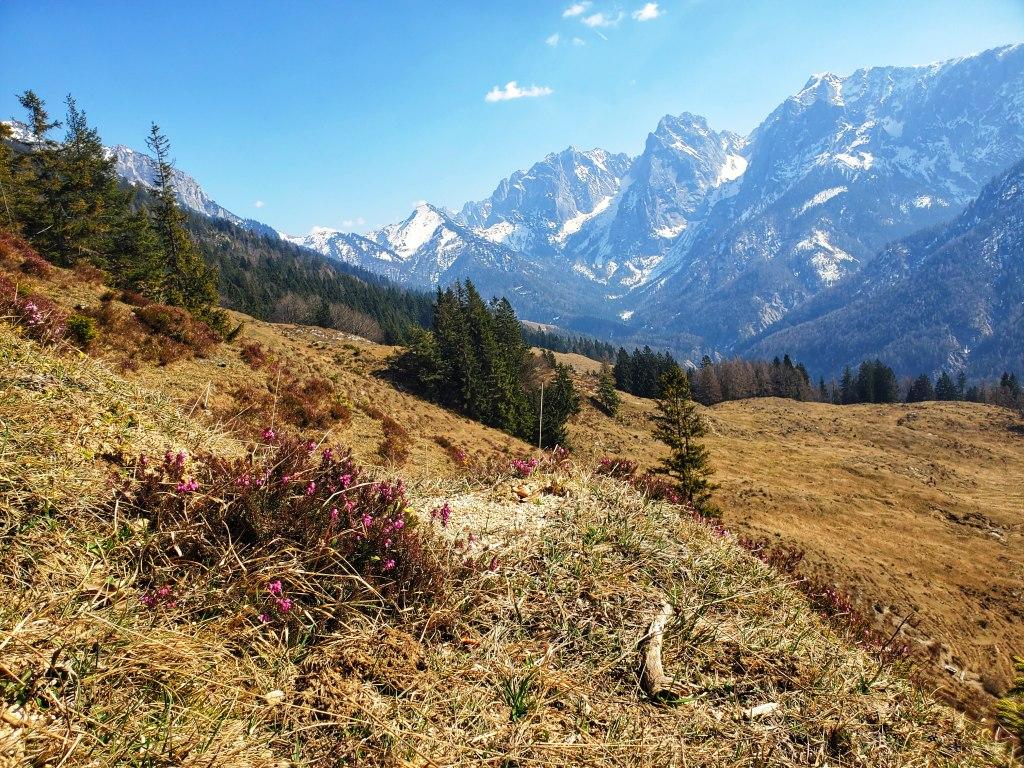
Don’t get me wrong. It’s beautiful and magical to experience a white Christmas with snow-covered peaks, but winter temperatures can take time to adapt to (if you come from a place with a warmer climate).
You’ll need to stock up on a proper winter jacket and winter boots. But if you love skiing, winter may not bother you at all.
Language Barrier
Austria, and especially Vienna, is a very multicultural city. However, smaller towns like Kufstein, where my brother lives, are much less diverse.
Although you can get by with just English, most official documents and forms are in German.
Moreover, speaking a local language can help you integrate into Austrian society and make it easier to connect with locals.
But don’t let the language barrier discourage you from moving to Austria. Yes, German grammar is a bit of a nightmare, but if there is a will, there is a way.
Duolingo is a cool platform where you can study basic German in a playful way.
High Taxes
expats in austria are unhappy with the usual things such as high taxation but generally speaking, countries with good social security systems also tend to have high tax rates. I can see a similar pattern in Canada. I guess someone has to cover the cost of those social safety nets.
Austria has different tax brackets depending on how much you earn.
The good news is that you get what you pay for. The Austrian government provides excellent public services like free education and generous pensions.
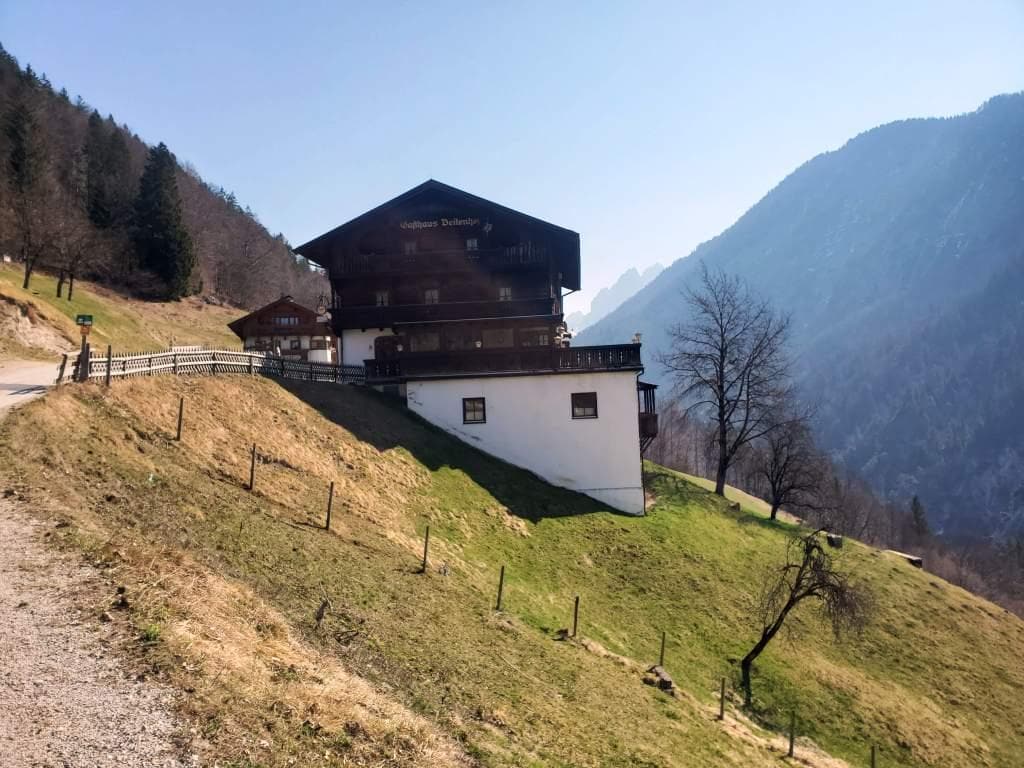
Long Wait Times for Medical Care
Although the health care system in Austria is of a high quality, get ready for long wait times.
There seems to be a shortage of physicians in Austria, especially in rural areas, so getting your family doctor can be a challenge.
It can take you many days to see a general practitioner and several weeks if you need a specialist.
Final Word
Of course, no country is perfect, and Austria is no exception. Overall, Austria is an excellent place to live with a high standard of living and plenty of opportunities for outdoor activities year-round.

You might get frustrated about short opening hours for stores, banks, post offices and government offices and having to deal with the intricacies of the German language.
But the pros of living in Austria far outweigh the cons.
You can look forward to less stressful working conditions, a relaxed pace of life, affordable housing, a safe and family-oriented environment, high-quality schooling, a rich cultural heritage, natural beauty, and an excellent public transportation system.
Frequently asked Question – FAQS
What are the pros of living in Austria?
Austria is known for its excellent healthcare system and high quality of education. It is considered a safe country with low crime rates. The country also offers a good standard of living and is known for its beautiful natural landscapes, making it a great place for outdoor activities.
What are the cons of living in Austria?
One of the main disadvantages of living in Austria is the high cost of living, especially in cities like Vienna and Salzburg. Housing and day-to-day expenses can be expensive. Another challenge is the language barrier, as many Austrians primarily speak German. Additionally, taxes in Austria can be relatively high.
How is the cost of living in Austria?
The cost of living in Austria is generally high compared to many other European countries. Major expenses include housing, healthcare, and transportation. However, the cost of living can vary depending on the city or region you choose to live in.
Is Austria a good country for expats?
Yes, Austria is considered a desirable country for expats. It offers a high standard of living, excellent healthcare and education systems, and a safe environment. There are also attractive job opportunities, especially in sectors like technology, finance, and tourism.
What are the wages like in Austria?
A: Wages in Austria are generally considered to be high compared to other European countries. However, it is important to consider the relatively higher cost of living when evaluating the attractiveness of wages in Austria.
Are there any specific cities in Austria that are recommended to live in?
There are several cities in Austria that are popular among both locals and expats. Vienna, the capital city, is known for its rich culture, vibrant arts scene, and high quality of life. Other cities like Salzburg and Innsbruck also offer a great quality of life with stunning landscapes and outdoor activities.
How is the healthcare system in Austria?
Austria is known for its excellent healthcare system, which provides comprehensive coverage and high-quality care. The system is funded through a combination of social insurance contributions and taxes, ensuring that everyone has access to healthcare services.
What are some outdoor activities available in Austria?
Austria is famous for its outdoor activities, especially in the Alps. Popular activities include hiking, skiing, snowboarding, mountaineering, and cycling. The country offers a wide range of beautiful landscapes and scenic trails for nature lovers.
Can I study at universities in Austria as a foreigner?
Yes, Austria is known for its excellent higher education system and welcomes international students. There are many universities and colleges in Austria that offer a variety of programs taught in English, making it an attractive destination for foreign students.
Is Austria a safe country to live in?
Yes, Austria is considered to be a safe country to live in. It has low crime rates and a well-functioning legal system. The country also places a strong emphasis on security and safety measures.
You might also like to read –
Pros and Cons of Living in Cyprus
Pros and Cons of Living in Barcelona
20+ Pros and Cons of Living in Spain
The Pros and cons of living in Sweden and moving here
Pros and Cons of Living in Mexico
Pros and Cons of Living in France
